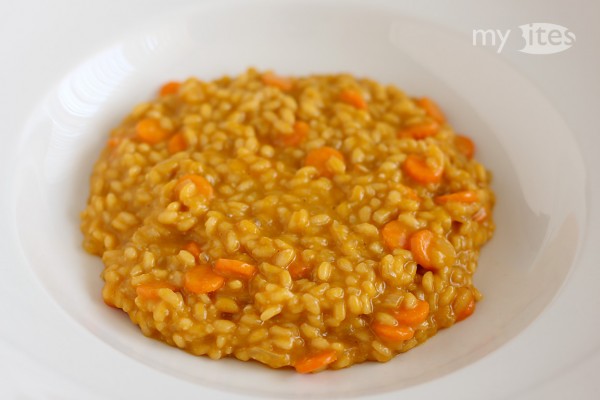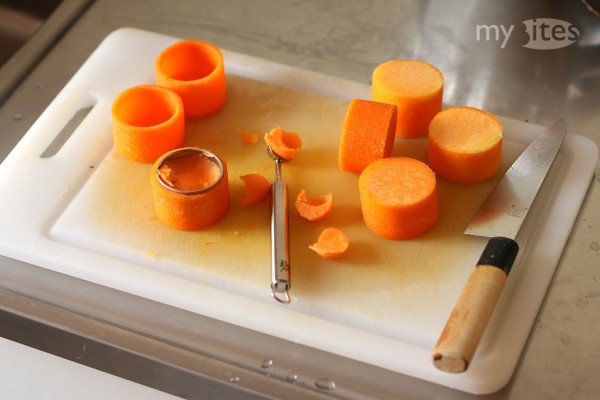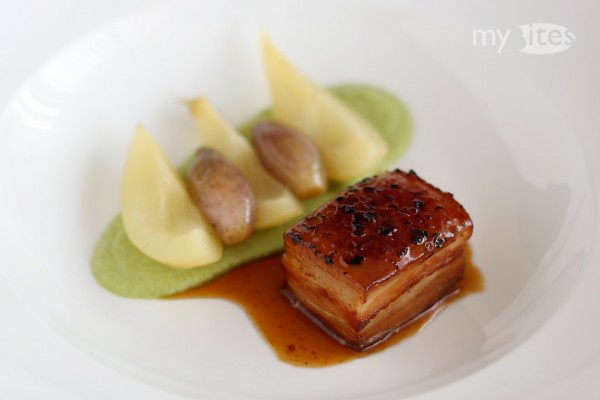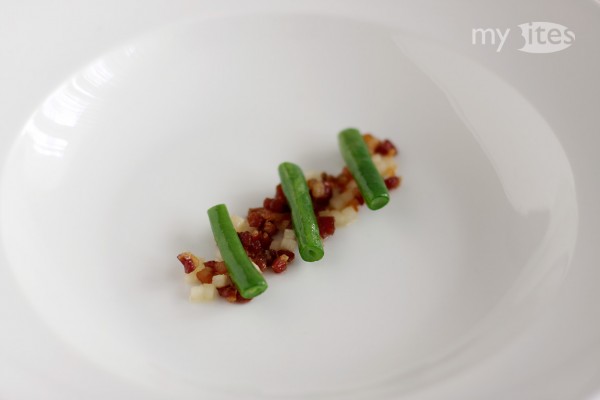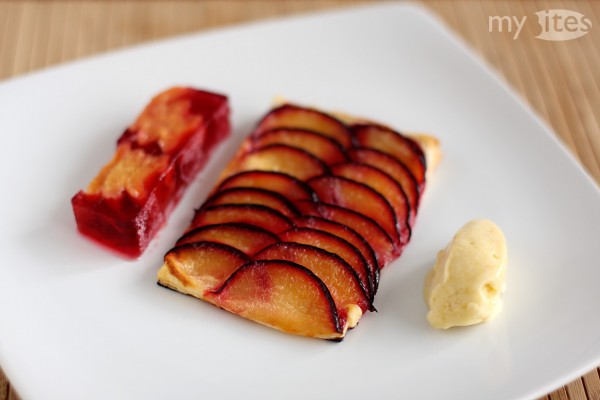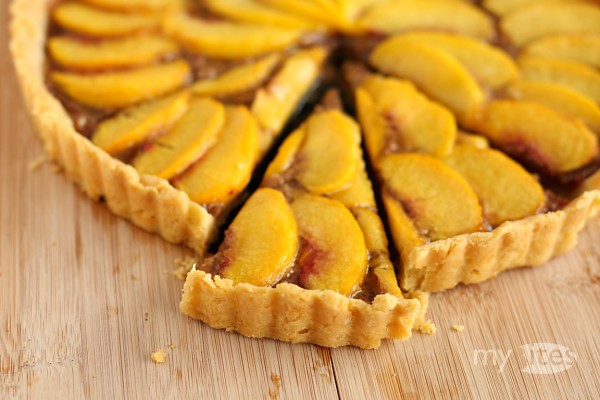While peeling and cleaning a pumpkin or butternut squash, the skin and the seeds usually get discarded. From one point of view this is somehow understandable, because neither the hard skin, nor the stringy seeds have a pleasant texture. On the other side, they are edible and contain a lot of flavor, so it would be favorable to use the “waste” somehow. I had the idea to add the discarded pumpkin seeds and skin parts to a vegetable stock. The resulting orange colored stock can be added to a butternut squash soup, used for cooking pumpkin cubes or cylinders, which might also be blended into a fine puree – or for making this ultimate butternut squash risotto.
Category Archives: Food Type
Pumpkin Dominostein
Pumpkins and squashes are extremely versatile. In Hungarian language the butternut squash is called “baking squash” (sütőtök), because traditionally it is simply cut in slices and baked in the oven until nicely caramelized. The name is somehow misleading, because pumpkins and squashes can be also cooked, steamed, or even be eaten raw or marinated. By adding sugar or syrup they work really well in cakes or sweets too. Based on this sweet application I created a mini cake inspired by Dominosteine, a praline of German origin.
Pork Belly Glazed with Pine Tree Honey, Green Bean Puree, Vanilla Shallots and White Wine Pears
Similarly to the green bean soup, this dish builds on the traditional combination of the three ingredients: beans, pears and bacon. Due to several modifications, my reinterpretation is pretty far away from the classical way of cooking everything layered in a single pot. Here each component received a unique role on the plate, and I also brought the fourth hidden component, the onions more into the foreground.
Green Bean Soup with Pear and Bacon
Pears, beans and bacon are a traditional German combination. This relationship might also originate from the simple fact, that the seasons of pears and beans overlap. Some additional fat or salty bacon only further improves a dish, so it can’t be a mistake to include it. Traditionally, the combination of these three ingredients is cooked layered in a single pot, but there are countless other ways to prepare and serve them too. In this recipe I combined the beans, pears and bacon in a simple and light soup. Although the soup can be cooked even simpler, I included some further steps to preserve the color and optimize the texture for a perfect green bean soup.
Plum Variations
In autumn plums appear at the markets in various sizes, colors and shapes. For example the round ones are pretty close to nectarines, with the only visual difference that their skins are blue or pale yellow. The oval damsons are the most common here in Franconia, in most cases this is the plum you will find at all markets. And sometimes, if you’re lucky, you might even spot some tiny greengages. Removing their seeds makes the most work among these three plums, but greengages also have a very nice wild, more natural taste. For this dessert I combined these three plum subspecies, all with interesting added flavorings.
Peach and Almond Toffee Tart with Fennel Sorbet
Recently vegetables are becoming more and more popular as dessert ingredients. I don’t think it’s so unusual to use vegetables in desserts, because a lot of them are already pretty sweet on their own. Carrots, pumpkins or zucchinis became quite common as cake ingredients recently. Fennel for example can be applied in desserts too. The anise flavor has already been used for several hundred years as a spice for sweets. Combined with white wine, fennel makes a very nice sorbet, which can be paired perfectly with almond and peach, e.g. like with this delicious tart.
